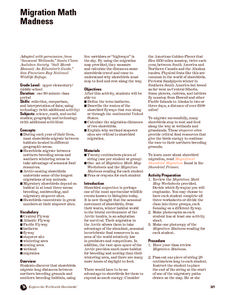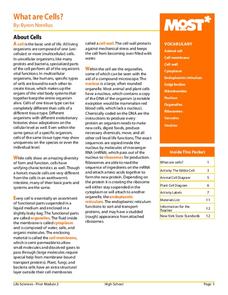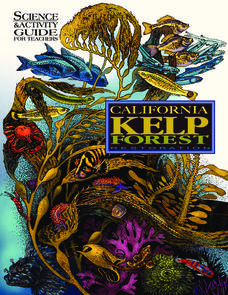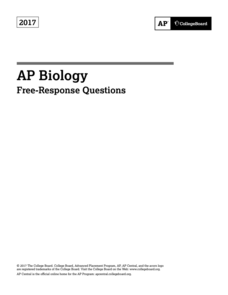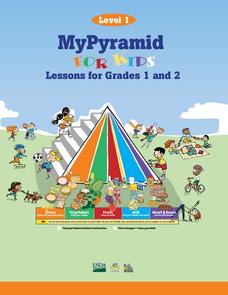Pace University
Grades 6-8 Ecology
Why are our national parks important? Scholars research the national parks and explore the basic ecology of these areas in a differentiated instruction unit on ecology. They learn about ecosystems, food chains, symbiosis, and biomes. The...
Education Outside
Papermaking
Imagine recycling food scraps and using them to make paper. The directions are all here in a seven-page packet that details several paper-making strategies.
Sea World
Marine Animal Husbandry and Training
Step into the role of a zoo director with several activities about animal training and running a zoo. Kids calculate the amount of food each animal needs, design a habitat for penguins, decide how to breed bottlenose dolphins, and train...
Curated OER
Biotechnology Regulations
Bio-ethical laws and regulations on the federal, state, and local levels are covered in this Powerpoint discussing genetically modified food. The steps needed to get permits and approval for GMO crops and other foodstuffs are...
American Museum of Natural History
Pterosaurs: The Card Game
Piecing together the past is a challenging endeavor. Learners get a taste of that challenge as they play a game that incorporates several components such as trophic levels, geological time periods, and catastrophic events. Pairs work to...
National Wildlife Federation
What's Your Habitat?
How do human habitats compare to animal habitats? Individuals begin their nature discovery by drawing their own habitats that extend beyond their houses. Pupils ensure their drawings include the four habitat elements of food, water,...
Curated OER
Relative Age Dating
Modeling dough and paper cutouts in science class? Learn about how relative age dating concepts, like the Law of Superposition and cross-cutting relationships, can be used to describe the formation of sedimentary layers.
Alabama Wildlife Federation
Butterfly Gardening
Build a place for butterflies to call home. After identifying the needs of butterflies in terms of water, food, shelter, and reproduction, learners create a scale model of their ideal butterfly garden. Once the model is complete, they...
Environmental Education in Wisconsin
Biome Travel Guide
In a perfect marriage of social studies and science, groups work together to research and create a travel guide presentation to share with the class. Not only do kids learn about the climate and geography of a biome, but also the...
Prince William Network
Migration Math Madness
A great way to incorporate math into life science, this activity has learners measure migratory routes on a map and calculate the actual distance that shorebirds on the routes would cover. Learners compute the distance covered in both...
Curated OER
What Are Cells?
Energize the cells of young biologists with an edible life science activity. Engaging students in exploring the inner workings of plant and animal cells, this activity involves using colored jello and various sweet and...
Colorado State University
Can Boiling Make Something Freeze?
Use boiling as an avenue for freezing. Young scholars watch as liquid nitrogen removes heat from the ingredients for ice cream. As this happens, the nitrogen boils and the ice cream freezes—all in the same container. A little science magic!
NOAA
Through Robot Eyes
How do robots assist ocean explorers in collecting data and images? The final installment in a five-part series has science scholars examine underwater images collected by robots and identify the organisms shown. Groups then calculate...
Dawn N . Ericson
California Kelp Forest Restoration
This unit is so cool, you won't be able to "kelp" yourself! Intended for all grades, this science and activity guide for teachers offers a unique opportunity to understand kelp's role as a valuable ecological resource. Teachers and...
College Board
2014 AP® Biology Free-Response Questions
The most popular AP science exam, Biology, also maintains the highest passing rate. The College Board releases old test questions covering trichomes and much more, along with statistics and scoring guidelines to help scholars study for...
College Board
2017 AP® Biology Free-Response Questions
With AP Biology remaining the most popular AP science exam, many teachers need help preparing. The College Board offers the actual free-response questions from the 2017 test covering pollination, germination, and more. Scholars learn the...
Howard Hughes Medical Institute
Classroom Activities: What Is My Carbon Footprint?
Everyone leaves an impression on the world—some more than others. An interactive lesson has learners analyze their lifestyles and the impact they have on the environment. The analysis includes travel, food, and energy categories and ends...
Curated OER
Introducing Habitats and Biodiversity
Students identify habitats in Arizona. Theys define and illustrate a food web, and explain the importance fo biodiversity.
Curated OER
Marine Ecosystems
Students identify producers and consumers and construct a food chain from four marine ecosystems. They describe the delicate balance among organisms in each environment. In groups, students discuss the human activities that upset the...
Curated OER
Testing for Vitamin C in Different Drinks and Foods
Students examine the importance of vitamin c in their diets and the sources that it comes from. In this vitamin lesson students complete hands on activities, interpret data and make a bar graph.
Curated OER
Picture Perfect Pyramid
Students investigate the concept of the food pyramid. The lesson includes background information for the teacher to lecture students about the food pyramid. They construct a model of the pyramid using cereal boxes. The projects could...
Curated OER
Eating Right with a Little Help From the VT
Students explore the food pyramid. In this nutrition instructional activity, students identify the 5 food groups and sort foods according to the group in which they belong. Students use the Visual Thesaurus to complete a food groups...
Curated OER
My Pyramid for Kids
Students become familiar with the proper amounts of different types of foods they should eat each day. In this food pyramid lesson, students complete worksheets to develop better eating habits. Students understand the importance of...
Curated OER
The Food Chain
In this food chain activity, students draw a food chain plus describe and name an omnivore, herbivore, and carnivore. Students answer nine questions.
Other popular searches
- Science Project Food
- Science Animal Food Chain
- Food Science Experiments
- Food Science Vocabulary
- Food Science Careers
- Consumer Science Food
- Spanish Food Science
- Simple Food Science
- Food Science Service Project
- Food Science Nutrition
- Nutrition and Food Science
- Food Science Lesson Plan









